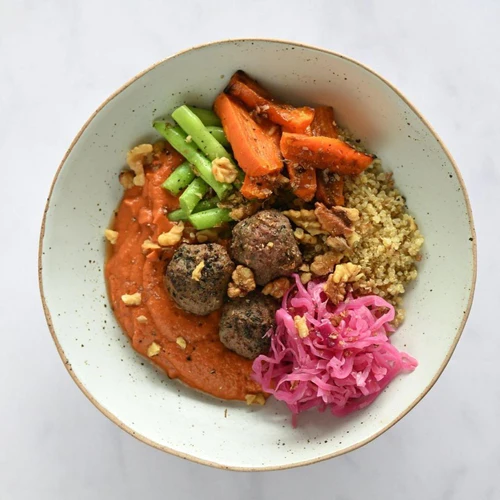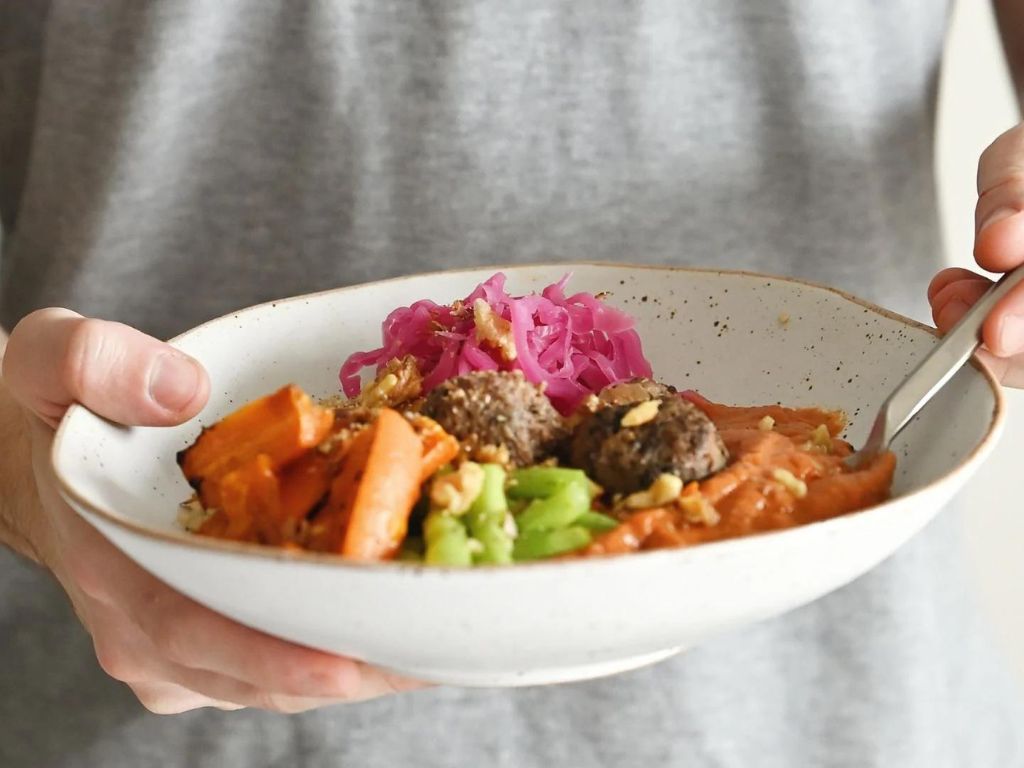4 Mins Read
The newly launched Singapore-based, Faba, says its vegan meal subscription service delivers the best of plant-based meals classic and new-world.
With a pre-seed funding round raised through the Singaporean VC Antler—where the founders met—Faba is now poised to spread through Asia and address the growing demand for healthy, alternative protein-based meals.
“Most people, myself included, have eaten omnivorously our entire lives. Increasingly people want to eat in a more environmentally friendly way, but when they jump into eating vegan they can fail fast because of a lack of knowledge around vegan nutrition, or simply the lack of availability for convenient vegan options,” co-founder and CEO Sean Hyatt said in a statement. “Our goal is to remove that friction by making vegan eating easy, tasty and nutritious.”
Convenient nutrition
According to Faba, its target customers are motivated by a desire for convenient nutrition. “Non-vegans don’t need alt-protein in every dish,” Hyatt told Green Queen via email. “They care more for thoughtfully designed meals that are nutritionally balanced and made to taste amazing.”
“The need for convenient, sustainable food solutions in Asia is only going to grow. Faba is building a business that meets this need with exciting and nutritious solutions,” Winnie Khoo, Partner at Antler Singapore, and Faba investor said in a statement.
Faba says its core consumer is a 25-35-year-old white-collar worker who is “an aspirational eater”—health-conscious, but time-poor. “They order on grab/foodpanda frequently, hardly cook (can’t cook), and can be found working in WeWorks (as a tenant), finance, or tech,” Hyatt said.

Asian consumers, like other markets where subscription meal services are gaining in popularity, are driven by convenience. But it’s still a tough sell.
“We don’t mandate subscription,” Hyatt says. “It’s profitable for us to sell one-off bundles, but subscription makes sense if you want planned nutrition, so we’ve added it for our customers.” Faba is also looking to expand beyond the cosmopolitan cities and would develop into a different model in markets like Indonesia that are more retail-driven.
Faba’s meals sell in Singapore for SG$88 for 6 meals (about $14.50 per meal). “With some scale, we’d like to bring this down to an even more palatable $12 (per meal),” Hyatt said.
Unlike other meal subscription services, Faba uses a central kitchen in lieu of its own, letting experts handle the production. Hyatt says Faba is more consumer-friendly with lower waste.
“There’s no pressure to eat FABA every day until it’s finished, you can take us out of the freezer whenever suits you best, be it lunch, dinner, or 2am on a Saturday morning,” Hyatt says. “Our goal is to be ten percent of our customers’ diet month to month, which for lunch and dinner, is six meals a month.”
A different approach
It’s also differentiating itself from other vegan services like Insane Meals, which it says took a “carnivorous approach” to vegan food. “We think in protein, fibre, carbs, and nutrients. Our bolognese is mushrooms, lentils, and walnuts. Alt protein has a huge benefit, but we don’t lean on them as a pillar of our food creation. As more people become open to plant-based solutions, they’re also going to be interested in OG vegan food.”

For Faba’s current customers, there are elements of discovery that make the platform interesting beyond the convenience factor, like its pairing of new-age dishes with vegan classics. Consumers can also curate their own subscription meals and delivery frequency. Dishes on the current menu include a classic Rigatoni Bolognese and a new Japanese Protein Bowl, which includes 30g of protein per serving. That dish includes local Singaporean start-up Angie’s Tempeh. It uses Impossible Foods‘ meat in some recipes and has spoken with Eat Just and Only Eg about using their products in select menu items.
“We love cooking ourselves,” Hyatt says. “If more people see their solution to rising costs as cooking at home, then we are here to support any way we can. I think there’s a huge risk that the global climate will deter people from thinking holistically about eating a greener diet, and they’ll revert to their old ways. We want to be there to support if that happens by making vegan eating easy, tasty, and nutritious.”
Lead image courtesy of Faba.



